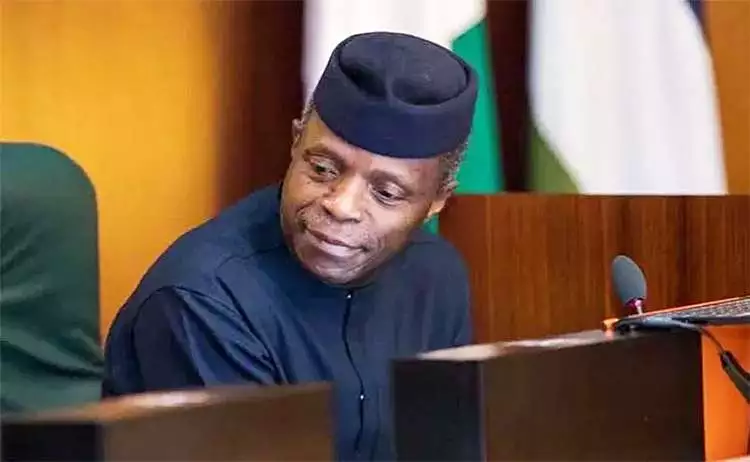Coming on the crest of the collapse of the nation’s two major power grids on Sunday, no fewer than 25 million Nigerians will be expected to pay N4,000 monthly for a special solar power arrangement by the federal government, Vice President Yemi Osinbajo has said.
Both Kaduna Electric and Eko Electricity Distribution Company announced yesterday national grid collapse, leading to total black out across the country.
Osinbajo is the chairman of the National Economic council and had announced last week, plan by the government to provide rural communities in the country that are not connected to the national grid, solar power.
According to Laolu Akande, Senior Special Assistant to the Vice President on Media and Publicity, over 5 million Nigerians, spread across the country will benefit from the arrangement expected to start by the end of the year, under a special billing system that will allow them own the solar panel after paying N1,500 weekly and N4000 monthly, depending on the consumers for a period of three years.
Solar Power Naija, according to the presidential adviser is being implemented by the Rural Electrification Agency.
He noted that that the arrangement allows as many as 25 million Nigerians to own personal solar systems in their homes, adding that the project is under the Economic Sustainability Plan, a private sector-led electricity access acceleration scheme to be facilitated by a low-cost loan facility from the Central Bank of Nigeria and implemented by REA.
Akande said “An important aspect of the scheme is the option of outright ownership by beneficiaries at a cost ranging from N1, 500 per week to N4, 000 monthly depending on the capacities, for a period of three years.”
“The programme will include the assembly or manufacturing of components of off-grid solutions to facilitate the growth of the local manufacturing industry.
“In view of the scale of materials required, solar equipment manufacturers/assemblers will be incentivized to set up facilities in Nigeria, thereby offering additional job opportunities to Nigerians.
“In addition, installation, servicing and payment collections are expected to provide thousands of other jobs. In all, at least 250, 000 jobs will be created.”
Meanwhile, the magazine has learnt that the project is being partly financed by the World Bank.
Discover more from The Source
Subscribe to get the latest posts sent to your email.








